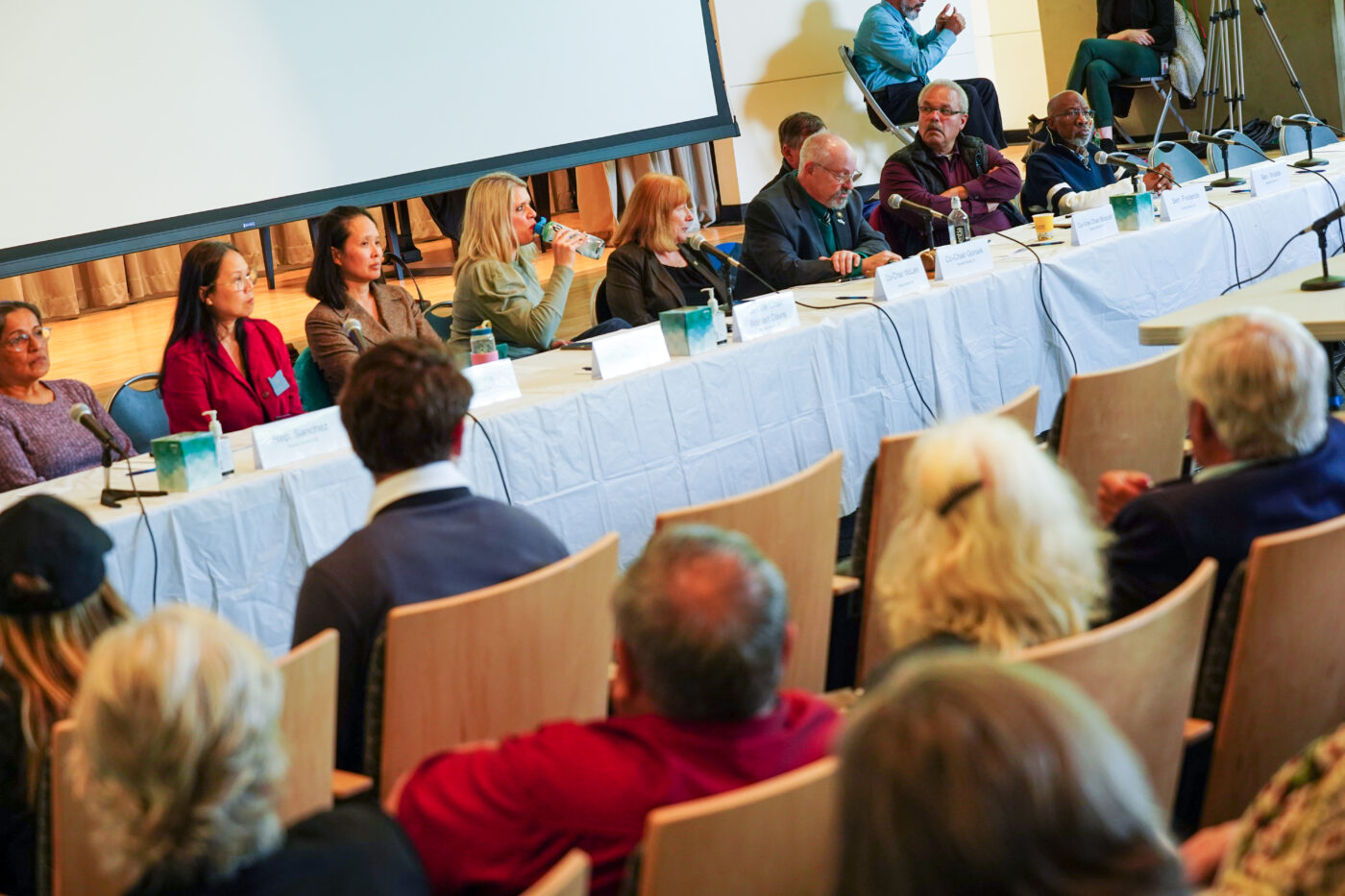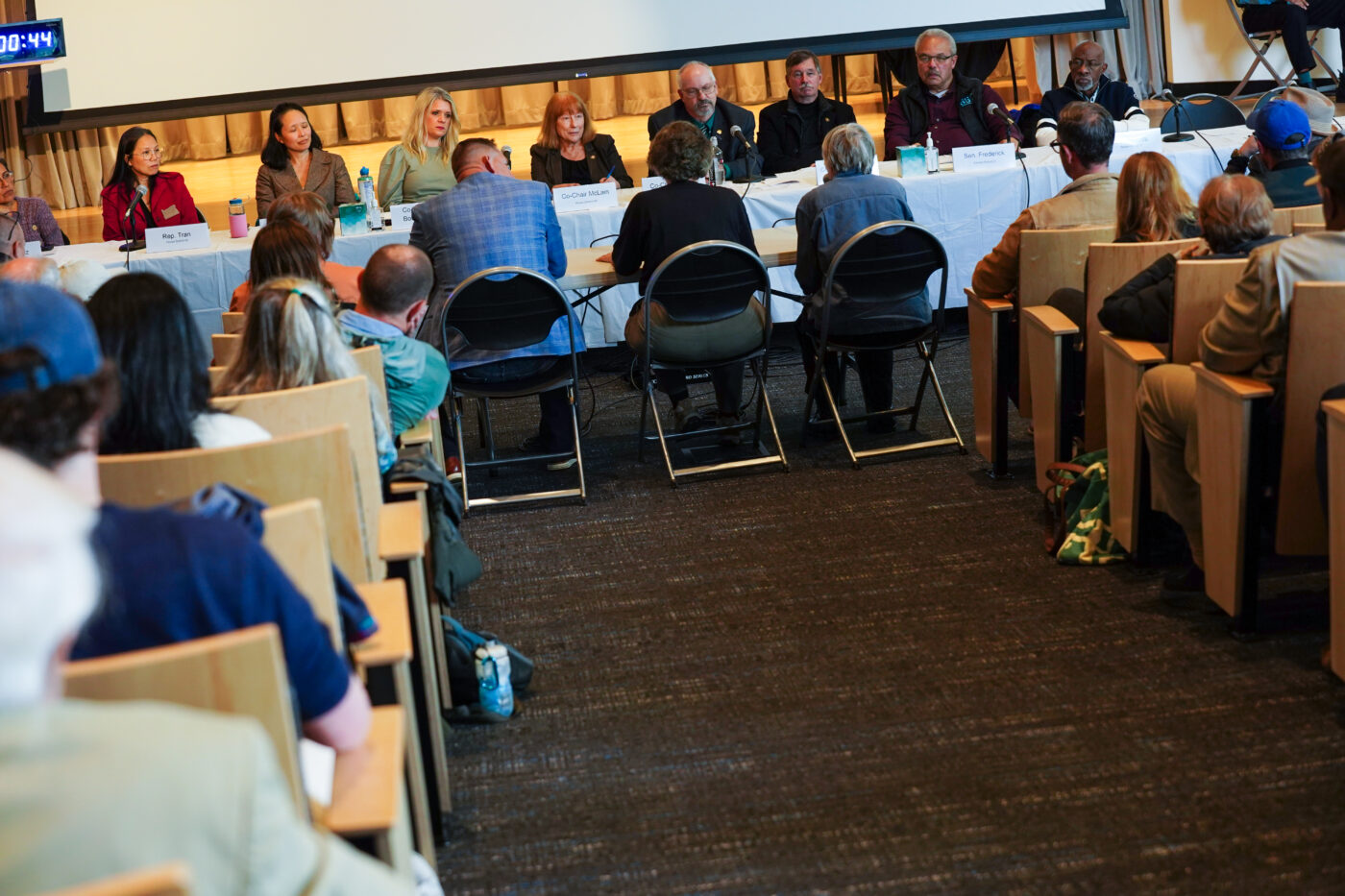“When I hear talk about ‘no more highways,’ what you’re really saying is ‘no more Black people’.”
– James Posey, NAACP Portland chapter president
If you missed Tuesday’s big public hearing on the 2025 transportation bill and you don’t want to wade through the two-hour recording on the Oregon Legislative Information Service (OLIS) website, sit back and check out this video. I’ve put together an album of the greatest hits to give you a solid sense of what members of the Joint Committee on Transportation heard from Portlanders.
Here’s a few things to keep in mind as you watch:
- This is the hearing that happened after the bus tour and roundtable I reported on yesterday.
- I edited chronologically as folks appeared.
- I didn’t include everyone and I did a lot of editing to only include what I felt was most salient/interesting/relevant (and yes it was totally subjective!).
- I shared a broad diversity of opinions and people who I feel shared particularly notable words.
You’ll hear from a trucking business owner who want lawmakers to fully fund and complete the freeway widening portion of the I-5 Rose Quarter project. You’ll hear a few requests for a downtown MAX tunnel under the Willamette. You’ll hear legendary citizen activist Terry Parker make his infamous argument that bicycles should pay more to use the roads. You’ll hear from climate activists representing Extinction Rebellion and Sunrise PDX. You’ll hear from a bike advocate who help up a sign with the word “BIKE” on it for his entire two minutes.


Some of the folks in the video who you might know include: northeast Portland environmental activist David Sweet, 18-year-old climate activist Adah Crandall, Portland City Council District 4 candidate Mitch Green, BikeLoud PDX board member Aaron Kuehn, Metro Councilor Christine Lewis, Portland Bridge Book Author Sharon Wood Wortman, Sarah Risser from Families for Safe Streets, No More Freeways Co-founder Chris Smith, and OPAL Bus Riders Unite Community Organizer Abby Griffith.
Another highlight worth watching is testimony (at the 5:00 minute mark) from James Posey, president of the Portland chapter of NAACP. Posey is a member of the I-5 Rose Quarter project’s History Albina Advisory Board (HAAB), the group ODOT assembled in 2020 to represent the Black community displaced by the freeway’s original construction and to help the agency reach its restorative and racial justice goals. Since the project won a $450 million federal grant back in March, Posey has become outspoken with his demands that Black people benefit financially from the vast influx of funding for the project.
Posey has also shared resentment about what he sees as white, anti-freeway activists who stand in the way of hundreds of construction jobs and millions of dollars for Black people in his community. At a March 12th HAAB meeting, Posey said, “[No More Freeways co-founder] Joe Cortright’s on here talking about ecological stuff. And I’m with some other people who say, ‘Where was he when they was building all this stuff and they took all this money and gentrified our community?’”
During his testimony Tuesday, Posey continued that framing of his concerns and added, “When I hear talk about ‘no more highways,’ what you’re really saying is ‘no more Black people’.” That comment garnered widespread attention when I shared it on X Tuesday.
It also elicited a response from Portlander Josiah Kelly (at 15:35), who grew up in the Albina area. “I would like to voice my opposition, specifically as a member of the African-American community,” Kelly said. “Given the historical context of the fact that many hundreds of African-Americans have been displaced by the construction of I-5,” he continued, and then said, in direct response to Posey, “So in essence it’s, more freeways, no more Black people.”
Unfortunately there were a lot more people signed up to testify that didn’t get an opportunity to speak. State Senator and JCT Co-Chair Chris Gorsek ended the hearing promptly at 7:00 pm, even though ODOT staff used up 30 minutes at the beginning of the hearing to share a presentation and video. Hopefully JCT members still read the many pieces of public testimony that have been submitted to OLIS.